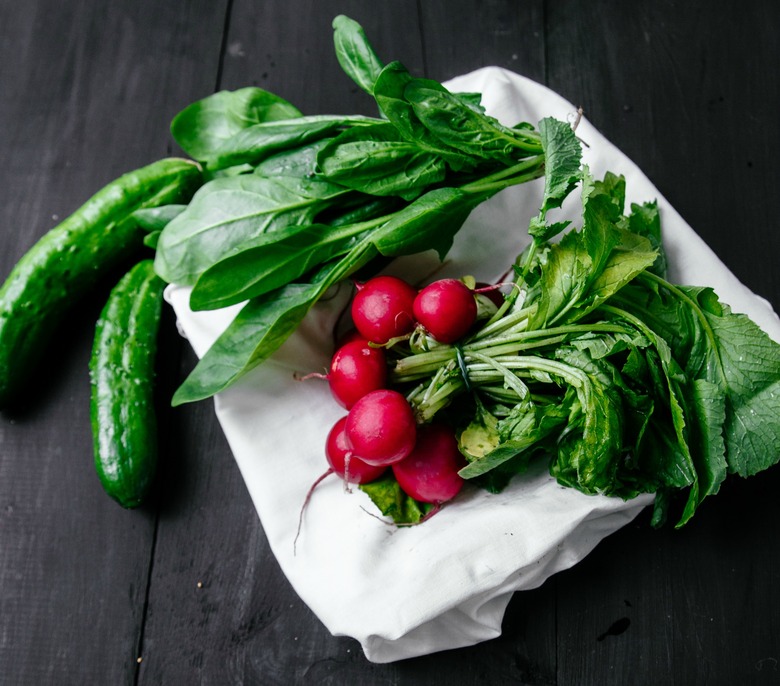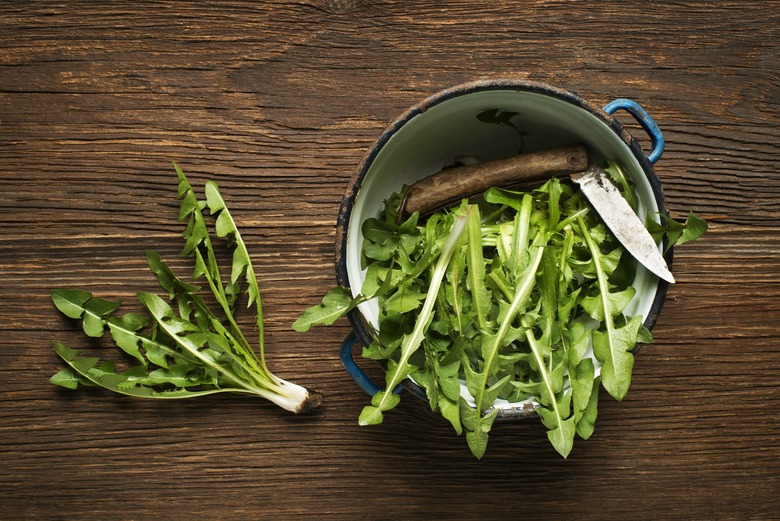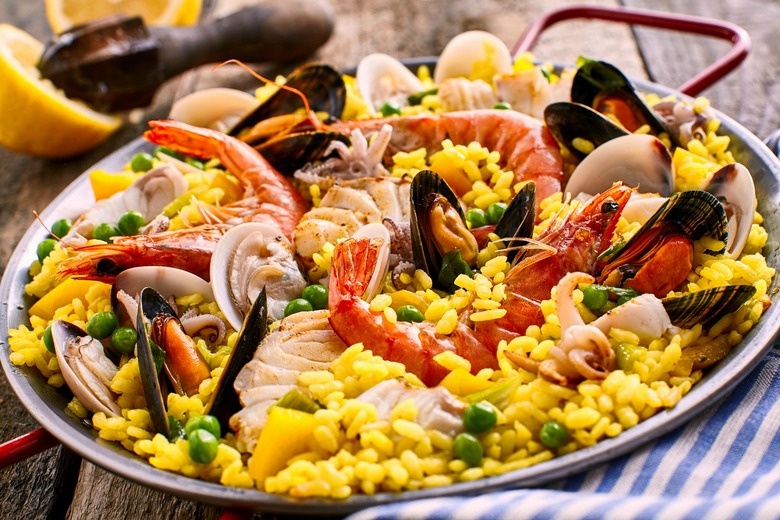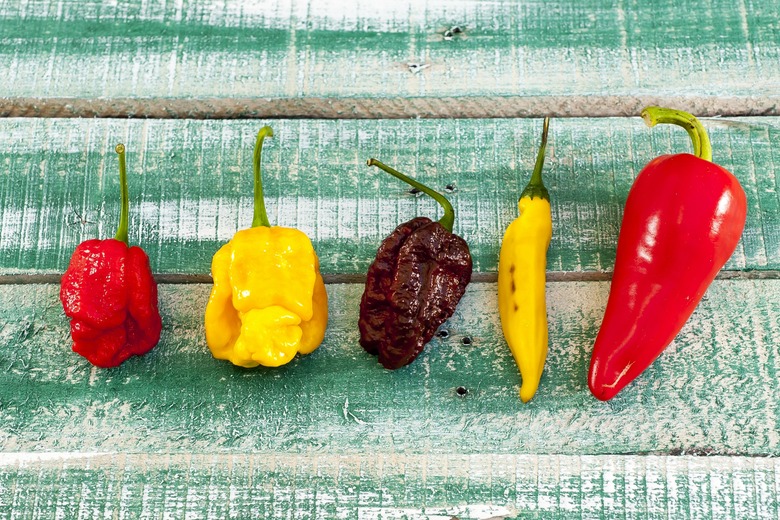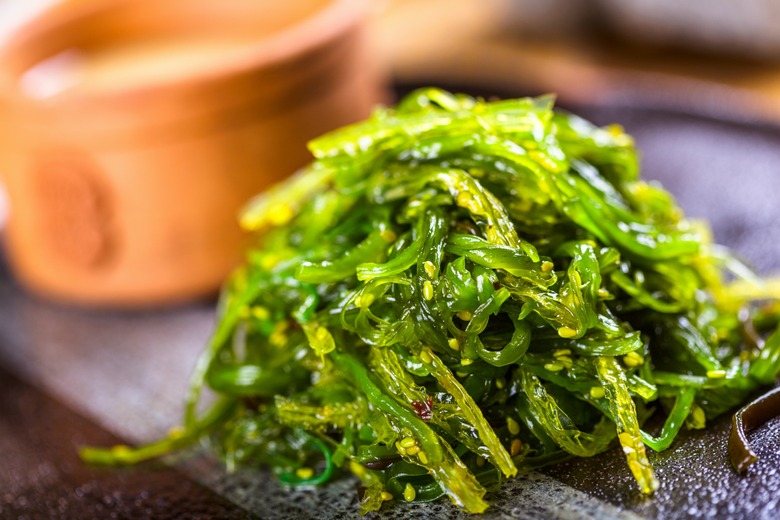Welcome Summer Right With These Healthy Hot-Weather Eating Tips
There are plenty of things to enjoy about summer. From the warmth of the sun to planned (and spontaneous) vacations, summer is teeming with life. If you're not careful, however, summer can quickly turn dangerous, if not deadly. Practicing proper summer safety extends beyond being wary of food poisoning, though.
Sure, you'll want to steer clear of cooking methods that may increase your chances of consuming foods that will give you a foodborne illness, but there's more to hot-weather eating than avoiding things. While we'll touch on that in the accompanying slideshow, we'd also like to teach you about foods to look to in order to lower your body temperature in the summer heat, ultimately increasing your healthiness and happiness.
Lowering body heat, maintaining healthy hydration levels, and trying new things can all help you welcome summer the right way with health in mind.
Cooking Methods Matter
We embrace slow-cooking, and we even have 50 amazing slow-cooker recipes that we'd love for you to try, but we suggest trying alternative cooking methods when it's warmer out. Slow-cooking, deep-frying, and baking have an unavoidable connection with comfort foods, and in an effort to remain light and fit in the summer we suggest steaming and stir-frying your meals instead. Look to nutritious raw food recipes as well if you want your meals to yield the highest amount of vitamins and minerals possible.
Cool Down With Vegetables
Certain vegetables can hydrate you, lowering your body temperature and improving cell function all the while. Consider a variety of salad greens like spinach and lettuce, radishes, cucumbers, and celery for their hydrating, cooling benefits.
Eat Outdoors, But Do So Safely
Dining outdoors is a delightful perk of summer, but the warmer weather is also a key ingredient for the proliferation of dangerous pathogens and bacteria. There are plenty of grilling mistakes (with nasty results) that people repeatedly fall victim to. Wash your hands, utensils, and produce before cooking, chill marinating meat, keep things that have touched raw meat away from cooked food (we know it's tempting to put those burgers right back onto the plate that you carried the raw patties to the grill on, but please resist the urge), and be sure to cook everything to a proper temperature in order to avoid food poisoning.
Explore Cooling Herbs
Not only are dandelion greens rich in vitamin A and calcium and a great addition to any salad, but they also can act as a cooling agent. Similarly, herbs like plantain leaf, sorrel, cilantro, raspberry leaf, peppermint, chickweed, and nettles can also lower your body's temperature. Consider adding some of these cooling herbs to your favorite infused water recipe.
Fish (Especially Shellfish) and Cooling
The world of seafood is one that is currently in limbo. Plenty of people (doctors included) believe some fish is intolerably unhealthy, and yet there are companies putting time and effort into producing healthy, sustainable, organic fish. Fish, according to Chinese medicine, are cool in nature. What this means is that fish, even after being cooked, can help to lower your body temperature. Even better, shellfish are traditionally viewed as cold (even cooler than cool) and can do wonders in helping you maintain a chill body temperature. If you choose to cool via fish this summer, it would behoove you to do a little research regarding your dinner's sustainability status and sourcing.
Fruits Can Keep You Cool, Too
Have you heard that putting a lemon in your water may change your life? In addition to lemon, other citrus fruits as well as watermelon, apples, berries, and cantaloupe can do wonders to hydrate you and bring your body temperature down. If you want to have a little fun while cooling down with a summertime meal, try one of our 10 Recipes That Can Be Served in a Watermelon.
Hot-Weather and Hot Food
There are nerves on our tongues that have special molecules called receptors. When you eat or drink something hot, these receptors send a signal to the brain, causing us to sweat and cool ourselves down. These receptors also respond to chile peppers and spicy foods. It's not a coincidence that spicy cuisine is found in hot and tropical regions of the world. These chile peppers activate sweat, thus lowering our body temperature and cooling us down, so don't hesitate to drown your next summer meal in hot sauce if you want to keep cool.
Seaweed Is Trendy and Beneficial
The typical western diet lacks plenty of vital vitamins and minerals, like iodine and potassium. Iodine can assist in proper metabolic function as well as increasing energy levels, and potassium can help your water levels stay balanced as well as inspire proper electrolyte functions. Seaweed, a food item that goes well with many summertime recipes, is packed with both iodine and potassium. Deemed one of the most beneficial trendy superfoods by many, seaweed is a great addition to any summertime diet for those looking to boost health and lower body temperatures.
Things to Avoid
There's no way to deny the fact that many Americans love to eat meat, especially burgers, throughout the year. In summer, the temptation to throw some animal muscle onto the grill is even more tempting, but meat does take quite a bit of effort to digest. Your body will benefit from eating less meat and more anti-inflammatory fruits and vegetables during summer; these can allow your cells to focus on hydrating and functioning properly. You'll also want to be wary of drinking too much alcohol while avoiding other unhealthy things like processed sugar (bye, candies and soda) as well as cigarettes in order to keep your body ready to combat the heat and tackle summer with as much energy as possible.
Water, Water, Everywhere
We'd be remiss not to highlight the ultimate hydrator: water. Whether you're prepping for a marathon, taking the dog out for a weekend hike, or just scanning through Spotify playlists on your back patio, you should always have water by your side. This is espeically true during hot summer weather when your body is apt to lose fluids more frequently.


